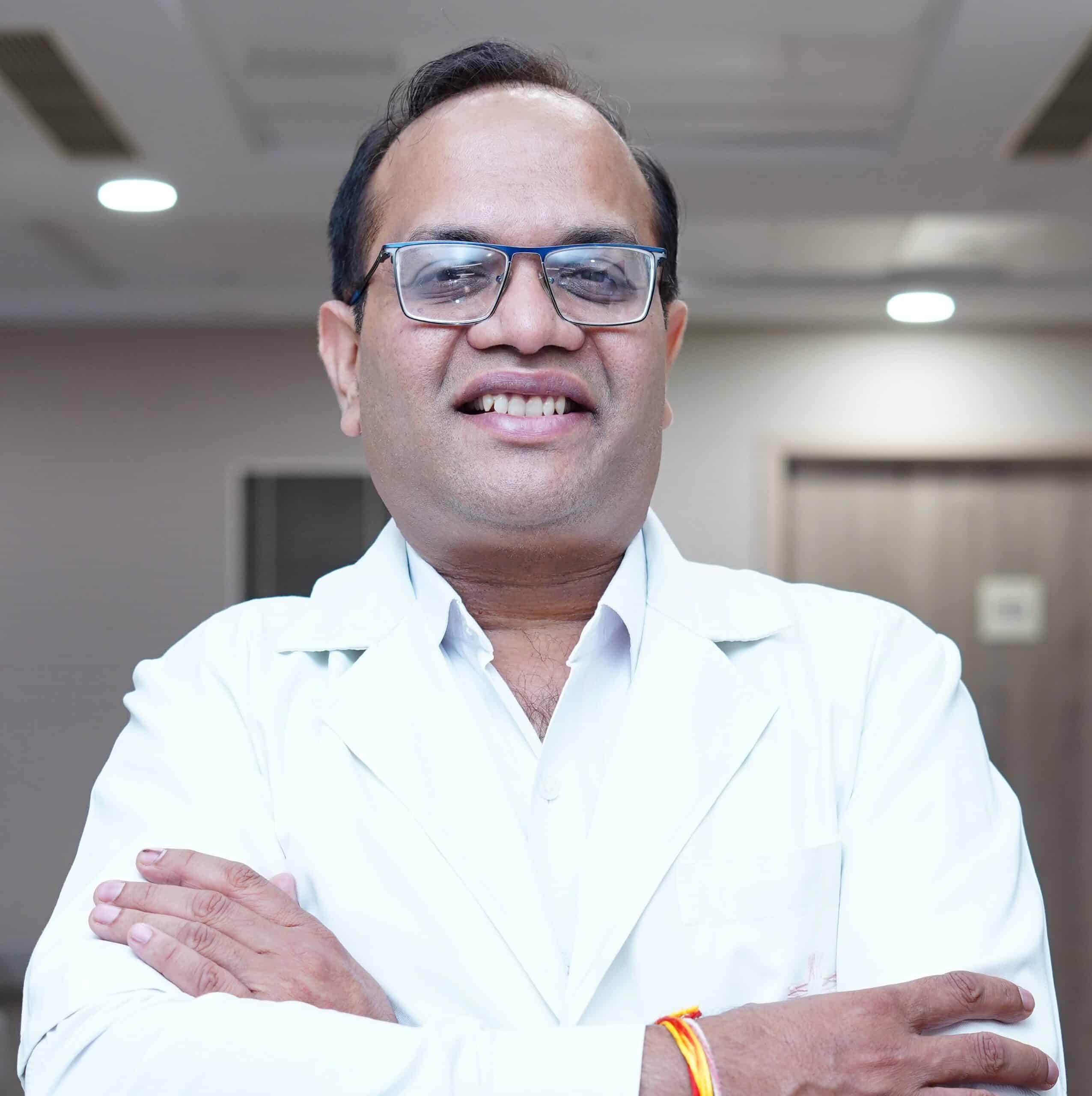- Home
- /
- Treatments
- /
- Anal Cancer Treatment in Ghaziabad
Anal Cancer Treatment
In Noida
Anal cancer, also known as carcinoma of the anal canal, can cause rectal bleeding, pain, changes in bowel movements, etc. Anal cancer is linked to certain types of human papillomavirus (HPV).
For expert diagnosis and treatment of anal cancer, consult with the top Oncologists at the CK Birla Hospital.
Anal Cancer
What is Anal Cancer?
Anal cancer occurs in the lining of the anal canal. It develops as a result of abnormal cell growth in the anal canal. Anal cancer can cause stool leakage, a lump or mass, bleeding during bowel movements, etc. Timely and early treatment is crucial to manage symptoms, prevent complications, and avoid spreading to other parts or organs.
What are the Types of Anal Cancer?
- Squamous Cell Carcinoma: This type of anal cancer is the most common and starts in the flat cells that line the anus.
- Adenocarcinoma: This type of cancer starts on the glands around the anus or in the upper part of the anus.
What are the Types of Anal Cancer Treatment?
- Surgery: Minimally invasive process involves removing the cancerous tissues in the anus and nearby tissues.
- Chemotherapy: Involves use of anti-cancer drugs to destroy the cancer cells. Chemotherapy can also be combined with other treatments.
- Radiation Therapy: Cancer cells are destroyed through high-energy rays. It is also combined with chemotherapy.
- Immunotherapy: Immunotherapy is used when cancer is in the late stage and involves using the body’s immune system to fight cancer.
What is the Average Cost of Various Anal Cancer Treatment?
- Surgery: Costs around ₹1,50,000 to ₹3,50,000
- Chemotherapy: Costs approximately ₹40,000 (Per session)
- Radiation Therapy: Can range from ₹1,50,000 to ₹3,00,000
- Immunotherapy: Ranges between ₹4,00,000 to ₹6,00,000.
These figures are approximate and can vary based on individual circumstances, hospital facilities, and additional services required.
Any Complications Associated with Untreated Anal Cancer
- Metastasis: The cancer cells may start to spread to other organs (liver, lungs, etc)
- Chronic Bleeding: Persistent rectal bleeding can cause weakness, anaemia, iron deficiency, etc.
- Severe Pain & Infection: Ulcers or open sores may form, increasing the risk of bacterial infections.
- Loss of Bowel Control: Damage to anal sphincter muscles can cause difficulty controlling bowel movements.
Meet Our Top GI Oncologist

Preventive Measures Against Anal Cancer
- Get Vaccinated: Get an HPV vaccine to avoid catching HPV infection (known to be causing anal cancer).
- Avoid Smoking: Quit smoking & consuming alcohol as it increases the risk of developing anal cancer.
- Practice Safe Intercourse: Use barrier protectors during intercourse to avoid the risk of HPV.
- Get Regularly Screened:Keep note of the symptoms and get screening done to detect them early.
Diagnosis of Anal Cancer
- Anoscopy: A lighted tube is inserted to examine the suspected areas in the anus & rectum.
- Colonoscopy: Tube with camera is inserted to examine the colon and rectum.
- MRI: To detect anal cancer and its spread through detailed images.
- Biopsy: Test to ascertain cancer, type, and its stage.
- PET Scan: To identify the spread of cancer in other organs.
Pre-Treatment/Surgery Instructions
- Avoid eating or drinking anything for 8-10 hours before the surgery/treatment.
- Empty the bowel or stick to a liquid diet.
- Quit smoking and consuming alcohol to support treatment.
- Follow the doctor’s instructions for medication.
- Make sure you have a caregiver with you post-surgery.
Post-Surgery Instructions
- The patient will be observed for a few hours post-surgery.
- Hospital stay may vary from 2-10 days, depending on the surgery type and recovery progress.
- Follow-up appointments will be scheduled to monitor recovery.
- Avoid strenuous activities and follow a balanced diet to aid recovery.
Recovery After Anal Cancer Treatment
Post anal cancer treatment, the recovery depends on the type of treatment or surgery performed. Generally, patients can expect:- Initial recovery takes 2-8 weeks for minimally invasive surgery.
- Full recovery may take anywhere from 3 months to 1 year.
Be a super-mom, stay informed about pregnancy health updates with our weekly newsletter
[contact-form-7 id=”16292″ title=”Subscribe”]
FAQs Around Anal Cancer Treatment
Is anal cancer curable?
Yes, anal cancer is curable if detected in the early stage.
What is anal cancer?
Anal cancer occurs in the lining of the anal canal. It develops as a result of abnormal cell growth in the anal canal.
What are the first signs of cancer of the anus?
The most common signs/symptoms include rectum bleeding, weakness, lump, stool leaking, etc.
What are the symptoms of anal cancer?
Anal cancer can cause bowel changes, lumps, itching, bleeding, etc.

